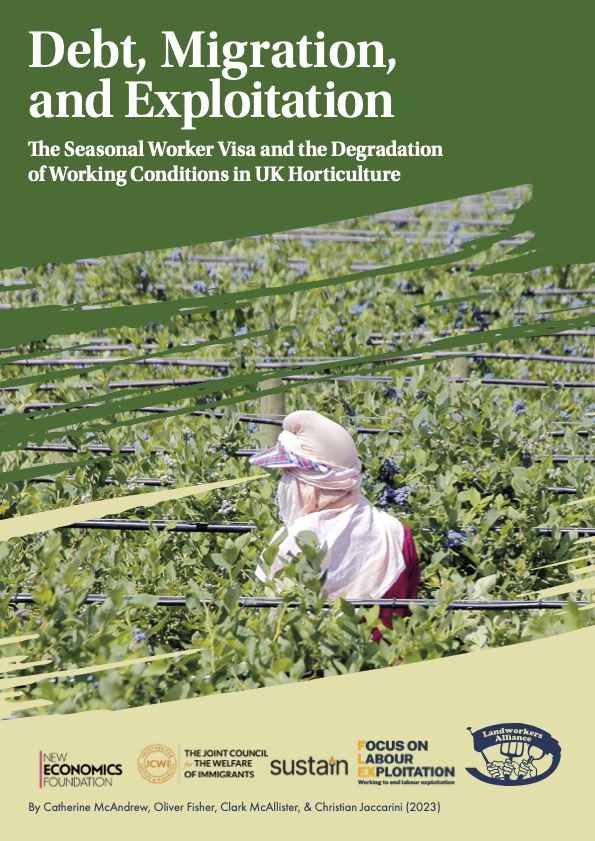Our new report ‘Debt, Migration and Exploitation’ shines a light on the systemic drivers of exploitation in the UK immigration system with regard to seasonal fruit and veg pickers.
The report ‘Debt, Migration and Exploitation: The Seasonal Worker Visa and the Degradation of Working Conditions in UK Horticulture’ has been written in collaboration with the Joint Council for the Welfare of Immigrants, New Economics Foundation, Focus on Labour Exploitation, Sustain and a farmer solidarity network of former migrant seasonal workers.
Seasonal work plays a significant role in UK agriculture. The government estimates that between 50,000 and 60,000 seasonal workers are needed annually to bring in the wider harvest across the UK, and these workers are almost entirely recruited from outside the UK.
Many of these workers are recruited via the new Seasonal Worker Visa scheme, a temporary migration programme introduced in 2019 to alleviate post-Brexit labour shortages, but a series of recent media exposés have revealed that visa holders are facing mounting issues including low wages, wage theft, excessive hours, debt bondage, and abuse by supervisors.

Our new report adds to this mounting body of evidence, and lays bare the legal and economic structures that facilitate the exploitation of farmworkers by the industrial food system, giving a platform for farmworkers to share their own account of life on the UK’s farms and develop solutions to the abuses they have faced.
The report also includes a supply chain analysis carried out by the New Economics Foundation, which reveals that migrant seasonal workers picking soft fruit retain on average just 7.6% of the total retail price of the produce.
Furthermore, the report outlines how workers who have to pay illegal broker fees (money paid by migrant workers to recruitment agencies in their home countries) can result in negative earnings. This means that after accommodation, subsistence and travel costs, some workers are essentially left out of pocket and end up paying more to come to the UK and work, than they keep as retained income to take home.
Another chapter in the report features an extended testimony from a former migrant seasonal worker from Nepal, in which they describe the exploitation of recruitment agencies, the debt associated with taking out loans to pay for agency fees and the need for the UK Government to design a more safe and secure seasonal visa scheme.
In response to issues raised in previous chapters relating to the supply chain, workers’ rights violations, and lack of redress, the final section of the report explores alternative approaches to labour rights, based on worker-led social responsibility (WSR), using the experience of the Coalition of Immokalee Workers (CIW) and Fair Food Program (FFP) in Florida as a case study.
